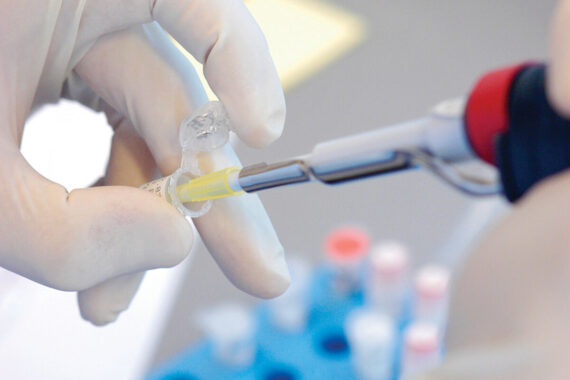Genetic risk scores only add ‘modest’ benefit over usual cancer screening

Genetic risk scores for cancer only have a very modest benefit over standard screening, even in the most optimistic scenarios, a modelling paper has concluded.
It means using polygenic risk scores as a way to streamline or better target existing NHS screening programmes is unlikely to have the benefit that some have proposed, the UK researchers said.
The Government’s ambition as set out in the NHS Long Term Plan was to maximise the number of cancers identified through screening including ‘the use of personalised and risk stratified screening’. It has also said that the UK National Screening Committee has been given an expanded remit to review targeted screening.
To predict what might happen if polygenic risk scores (panels of genetic variants known to be associated with cancer) were used in screening, the team split populations into risk quintiles for eight common cancer types based on the scores.
They calculated that the 20% most at risk account for 37% of breast cancer cases, 46% of prostate cancer, 34% of colorectal cancer, 29% of pancreatic cancer, 26% of ovarian cancer, 22% of renal cancer, 26% of lung cancer and 47% of testicular cancer cases.
But for most of those cancer types there is no good screening test currently in use, they pointed out.
They then looked at extending current screening based on genetic risk for breast, colorectal, and prostate cancer and found that you may pick up a small number of new cases of disease but still had the problem of overdiagnosis and potential harms, they reported in The Lancet Oncology.
In one example which considered lowering breast cancer screening to those age 40 to 49 in the top 20% by genetic risk, researchers said for every 100 patients currently diagnosed with symptomatic cancer, you would miss 63.5 who had not been screened, miss 10 in those who had been screened, diagnose 25 but not change the outcome, overdiagnose 3 and correctly identify 1.5 who would then not die from the disease.
For prostate cancer, where the genetic link is even clearer, in men 60-69 years in the highest quintile, 54 of 100 cancers would be in those who had not been screened, 31 would be missed on screening, 14 would be diagnosed but make no difference to survival and 1 patient would be detected and not die because of screening.
In colorectal cancer for 50-59 year olds, this same approach – only looking at the top 20% highest genetic risk – would identify and save 3.5 people but would also miss 67 cancers in those who had not been screened, the modelling study found.
The researchers said they had looked at breast, colorectal and prostate as being the most plausible cases for making use of polygenic risk scores but even with the most optimistic forecasts used in their analysis the difference in absolute numbers was ‘modest’.
Visit Pulse Reference for details on 140 symptoms, including easily searchable symptoms and categories, offering you a free platform to check symptoms and receive potential diagnoses during consultations.









